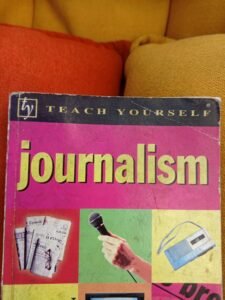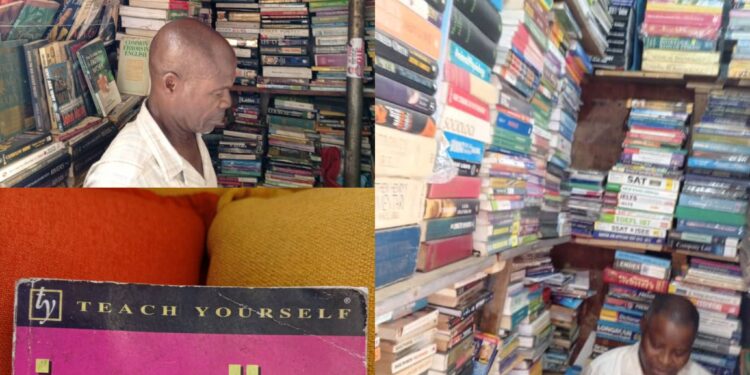
By Ibrahim Kegbegbe
In an era dominated by digital technology, where information is readily accessible at the tap of a screen, the reading culture among Nigerian students appears to be shifting drastically. As a journalist and media professional, my journey with books has never wavered, even after graduating from the Nigerian Institute of Journalism (NIJ) in 2023.
For years, I have mentored prospective students seeking admission into NIJ, guiding them through subject combinations for the Joint Admissions and Matriculation Board (JAMB) examinations and offering tutoring sessions after their lectures. This commitment to journalism and learning led me to my usual bookshops on Lagos Island on Friday, March 21, 2025, in search of new materials to enrich my knowledge.
At Mr. Godwin Nduka’s bookshop, where I purchased three books on journalism, I was taken aback when he asked, “Are you still reading books after graduating from NIJ?” A similar question followed when I visited Mr. Obi Joseph’s bookshop, where I bought two additional books, including Teach Yourself Journalism.

Their curiosity about my continued reading sparked a broader conversation about the reading habits of Nigerian students today. Are students still engaging with physical books, or has digital media entirely replaced traditional reading?
A Declining Culture? The Booksellers’ Observations
Mr. Nduka, a veteran bookseller, lamented that many Nigerian students now prefer reading online instead of purchasing hard copies. He attributed this shift to the convenience of digital access but emphasized the limitations that come with it.
“Books come with pictures that resonate with the information being read. Reading online is often affected by poor power supply and internet disruptions. The content is transient, while physical books allow easy revision and can be archived for future reference,” he explained.
Drawing a comparison with past generations, Mr. Nduka noted that students from the 1960s to the late 1990s had a deeper engagement with books than today’s students. “Apart from browsing the internet, many students of this millennium do not read as much as students in the past did,” he observed.
For Mr. Joseph, the primary factor affecting reading culture in Nigeria is economic hardship. “Students want to buy books, but there is no money,” he stated plainly. He acknowledged that although some students still seek out books, the demand has significantly reduced compared to past decades.

“I am a bookseller. I have two children in the university, and I see firsthand how the country’s economic situation affects students’ reading habits. It’s not that they do not want to read, but survival takes priority,” he said.
A Journalist’s Reflection
Their insights resonated with me. As someone who has mentored students and witnessed their struggles firsthand, I see a troubling trend. The internet has made information more accessible, yet the depth of knowledge that comes from reading entire books is often lost in fleeting digital snippets. Moreover, financial constraints make book ownership a luxury for many students.
But should we resign ourselves to this decline? The importance of books in academic and professional development cannot be overstated. While digital resources are valuable, they should complement rather than replace books. Governments, educational institutions, and private organizations must step in to revitalize the reading culture. Subsidizing academic books, improving library access, and incorporating reading initiatives into school curriculums could help bridge the gap.

As I flipped through Teach Yourself Journalism, a book that has been revised by various authors over the decades, I was reminded that knowledge is timeless. Whether in print or digital form, the key is to keep reading, keep learning, and keep growing.
Perhaps the real question we should be asking is not whether students still read, but how we can make reading more accessible and engaging for the next generation.
















